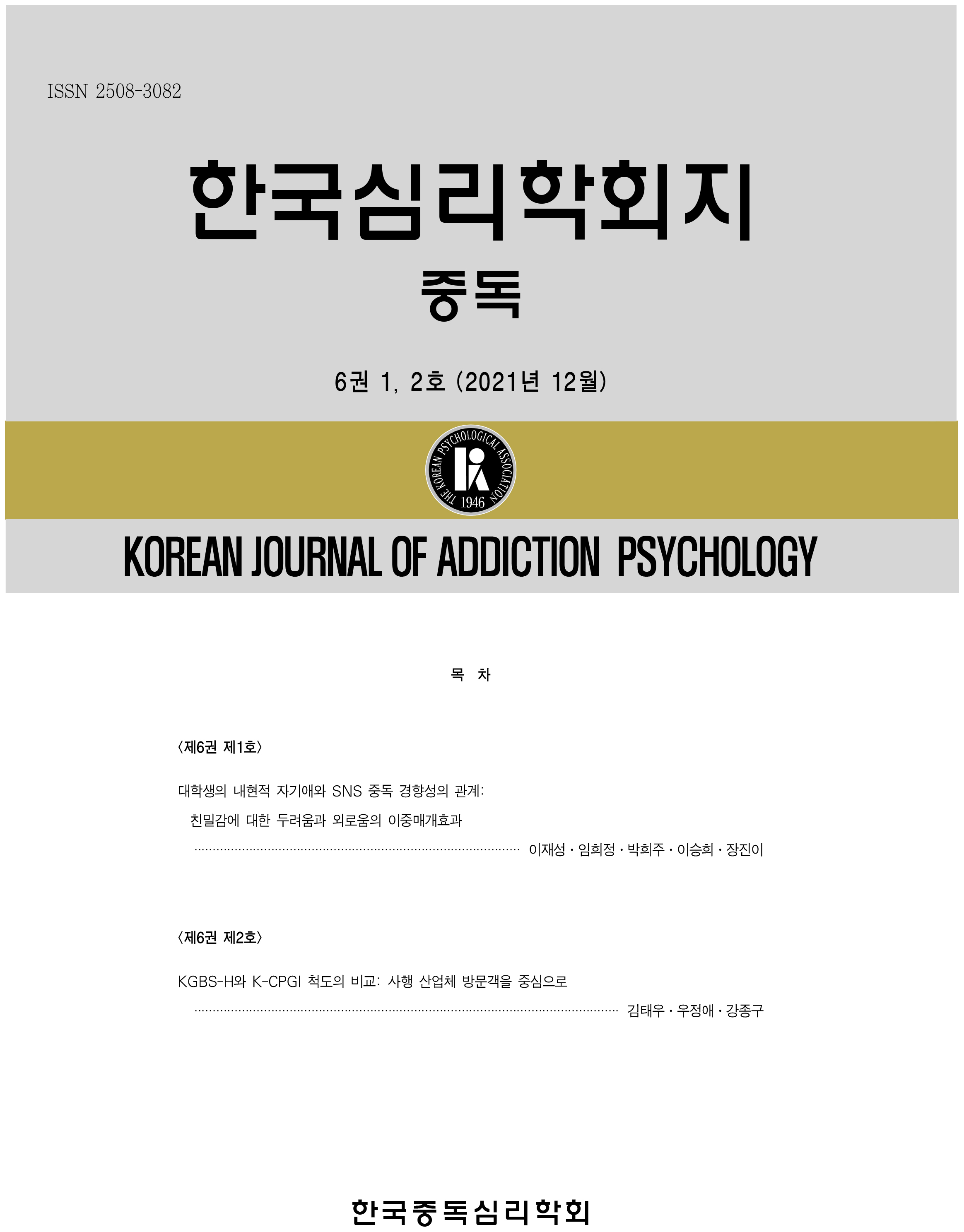Korean Journal of Addiction Psychology
- Log In/Sign Up
- P-ISSN2508-3082
 ISSN : 2508-3082
ISSN : 2508-3082
The Moderating Effect of Self-Resilience on the Relationship Between Children's Perfectionism and Depression

Abstract
The purpose of this study is to investigate the moderating effects of self-resilience on the relationship among self-oriented perfectionism, socially -prescribed perfectionism and depression of children. The subjects of this study consisted of 316, elementary school students from 5th and 6th grade. To measure the level of depression, Children Depression Inventory was used. The Resilience Scale was used to measure the level of self-resilience. Children' Perfectionism Scale was used to measure the level of perfectionism. To analyze statistical results, correlation analysis and hierarchical regression were used. The results indicate that depression and is negatively related to self-resilience. Self-oriented perfectionism and socially-prescribed perfectionism are positively related to depression. In other words, the more negative perfectionism, the greater the levels of depression and self-resilience. The results also indicate that self-resilience functions as a protective factor for children who have problems with depression in their self-oriented perfectionism and socially-prescribed perfectionism. Therefore, this study provides the importance of the development for self-resilience program to reduce the depression which causes perfectionism.
- keywords
- depression, self-oriented perfectionism, socially-prescribed perfectionism, self-resilience
- Submission Date
- 2016-10-10
- Revised Date
- 2016-10-21
- Accepted Date
- 2016-11-16
- Downloaded
- Viewed
- 0KCI Citations
- 0WOS Citations
